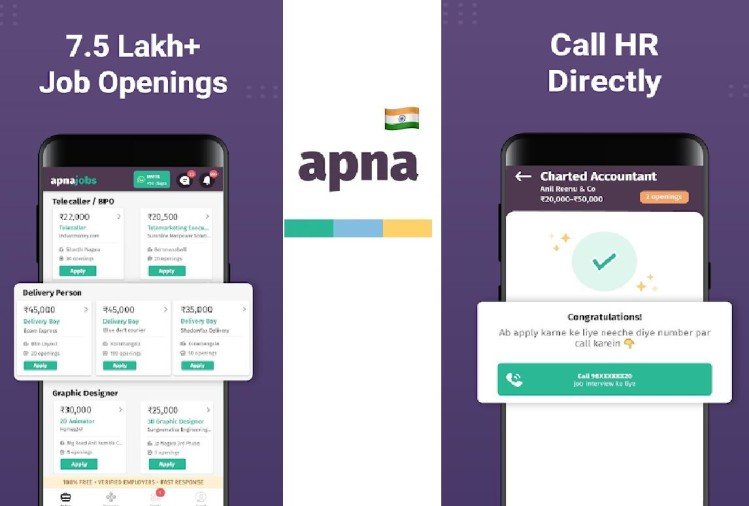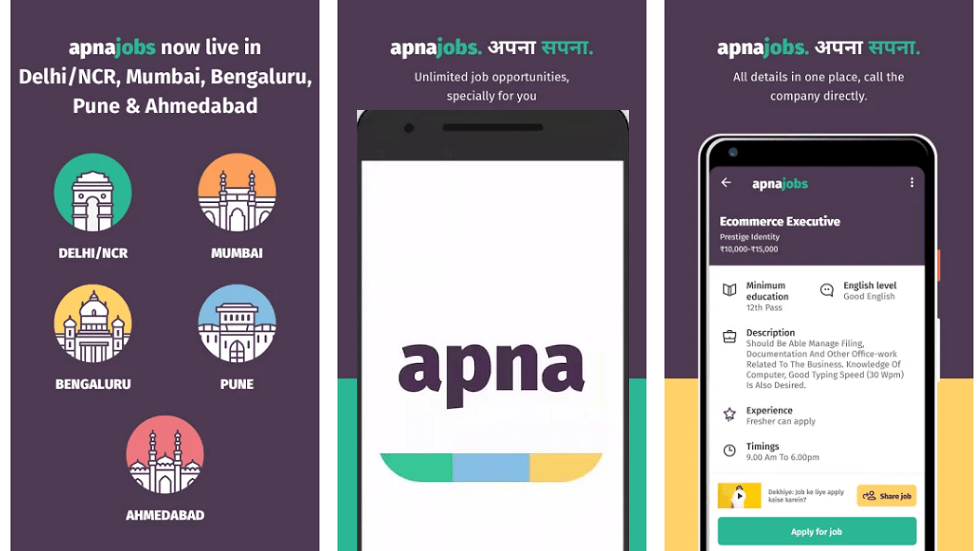The Turning Point is a collection of short essays on the moment when a business owner has a game-changing idea. Apna, a Bengaluru-based blue-collar job marketplace, was launched by Nirmit Parikh in 2019. Apna is the newest unicorn, with Tiger Global investing $100 million in a Series C round for a $1.1 billion value.
A member of the working class who performs manual labour is known as a blue-collar worker. Both skilled and unskilled labour can be found in blue-collar jobs. Many occupations need blue-collar, white-collar, and pink-collar labour and are usually paid hourly, while certain specialists may be compensated based on project or salary.
Any company that deals in industrial operations such as manufacturing, warehousing, building, maintenance, or processing needs blue collar personnel. They have a direct influence on the company’s revenue, therefore keeping them engaged is important.
Social startups are essential because they produce new goods and services while also developing and implementing critical social and economic growth concepts. Many of society’s most pressing issues are tackled, including unemployment, all of which are treated in novel ways. One such startup is Turning Point, founded by Nimit Parikh.
India was one of the worst-affected countries in Covid-19, but employment is rising, indicating that Asia’s third-largest economy is improving. Due to strong demand from industries such as e-commerce and health care, Apna, which was created shortly before the pandemic, has expanded 50 times in the last year. Apparently, the company’s manpower is upto 500 employees but it surely aims to expand. The company is headquartered in Bengaluru, Karnataka.

Nirmit Parikh, a former Apple Inc. executive, established Apna for job searchers on the periphery, describing it as “a LinkedIn for non-English speaking, non-affluent Indians.” By entering their name, age, and abilities, users may create a virtual business card, which is then sent to potential employers.
Apna offers training services as well. The programme offers micro-courses in conversational English and acing an online job interview. Its algorithms expedite the hiring process by matching candidates with appropriate employers and preparing them for interviews.
When a candidate fails an interview, Apna advises them to improve on certain abilities. It has recognised 4,000 skills, the majority of which are taught or produced in-house by partners. Through the program’s over 60 groups, users may interact with local experts, practise interviews, and teach one another new skills such as carpentry, painting, and sales.
Due to the application’s immense popularity and team’s hard work, the application got media coverage in news houses like The Times of India, Tech Crunch, NDTV, Dainik Jagran and Bloomberg. Jobs here are available for more than seventy work profiles under various categories of pay and has its availability in more than 35 cities. Mainly the technical and skill related jobs are mostly unavailable on prime websites due to the lack of space as they are profiles of not education but skills and the ones who find jobs lack a certain level of media understanding and reach. Hence, in order to cater the issue, Nimrik Parik started this initiative on his personal level with the help of his team.
Nirmit, a serial entrepreneur who enjoys solving issues with technology, wanted to help the world’s unorganised labour.
Apna, his firm, uses a tech-driven strategy to harness the power of communities and provide millions of users better work opportunities. It contains over 60 villages for specialised workers such as carpenters, painters, and field sales representatives, among others.
Apna, his firm, uses a technology-driven strategy to harness the power of communities and provide better work possibilities for millions of its members. It contains over 60 villages for specialised labour including carpenters, painters, and field sales representatives.

Unemployment, according to Nirmit, is a major problem in the country. He realised he could use technology to assist front-line workers in finding jobs quickly and close to their residences. As a result, he left Apple in 2019 and returned to India to start Apna, a professional networking and upskilling platform.
Apna’s storey began in 2019 with the creation of a mobile app aimed at increasing family earnings and boosting unorganised labor’s living conditions. It was even named one of the top applications of 2020 by Google.
Many of India’s biggest companies, including Zomato, Burger King, Bharti-AXA, Delhivery, TeamLease, G4S Global, Shadowfax, and 1MG, rely on Apna to satisfy their most immediate and critical employment needs. Some of India’s largest government and commercial sector organisations have also joined the platform. Apna is working with the National Skill Development Corporation, UNICEF Yuwaah, and India’s Ministry of Minority Affairs to increase candidate skilling and employment opportunities.
Nirmit’s entrepreneurial career began in 2009, when he founded Incone at the age of 21. While Apna became a unicorn in just two years, Nirmit’s journey began in 2009, when he founded Incone at the age of 21. On Gujarat, it specialised in dam automation to control floods and avoid damage from flash floods. As a result of his achievements in this field, he was named a World Economic Forum Global Shaper.
Nirmrit’s goal is to leverage popular technology to effect substantial cultural and social change in Indian society, but his plan didn’t take off until the first Apna user scheduled his interview in less than a minute. Apna was able to use this as a springboard, and the company has developed steadily since then.

Nimrit later developed Cruxbox, a platform for summarising web pages that was later bought by Kno and Intel. As a result, he relocated to Silicon Valley to work for Intel as the director of data analytics. Nirmit then moved on to Apple, where he worked in iPhone Ops product and strategy.
With over 16 million users from India’s rising working class, Apna has grown into a very active professional social network, recruiting marketplace, and upskilling platform.
In barely two years, the firm claims to have expanded 125 times. Apna claims to have assisted over 150,000 Indian enterprises, expanded its workforce, and conducted over 100 million job interviews. It wants to reach 2.3 billion people worldwide within the next two years.
According to statistics, India requires around 100 million jobs each year, and while start-ups are small enterprises, they play an important role in employment development in India. More money is accessible to individuals when more jobs are created, resulting in a much stronger economy. Given the fact, startups that focus on generating employment at low level should always be encouraged.



